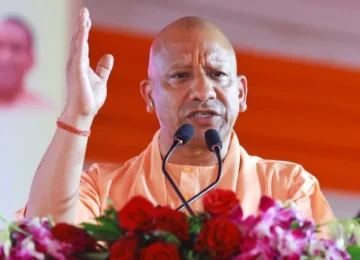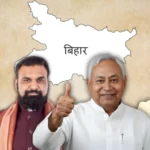Mental Health in Focus: World Mental Health Day Sparks Nationwide Campaigns
Celebrated every year on October 10 as World Mental Health Day, the day is dedicated to raising awareness of mental health issues, reducing stigma, and promoting access to care and support. In 2025, the day has once again gained nationwide attention in India, with government bodies, NGOs and mental health organizations launching several initiatives aimed at addressing the growing mental health crisis in the country.
The theme of World Mental Health Day 2025 is “Mental Wellbeing for All: Building Resilient Communities”, which emphasizes the need to create supportive environments for individuals to thrive mentally, emotionally and socially. With increasing cases of depression, anxiety and stress-related disorders across all age groups, mental health experts argue that awareness campaigns and early intervention are more important than ever.
Nationwide awareness campaign
This year, several high-profile campaigns have been launched across India on the occasion of World Mental Health Day. The Ministry of Health and Family Welfare (MoHFW) has launched a public awareness campaign under the banner “Mind Matters India”, which focuses on promoting conversations about mental well-being in schools, workplaces and local communities.
Social media campaigns using hashtags such as #mentalhealthmatters and #wellbeingforall are encouraging people to share their stories and support the network. Influencers, celebrities and mental health advocates are also participating in webinars, live sessions and panel discussions to spread knowledge about coping strategies, stress management and professional help.
Psychiatrist of AIIMS Delhi, Dr. Radhika Sharma, said,
Mental health awareness is crucial. By talking openly about mental challenges, we can reduce stigma and encourage people to seek help before conditions worsen.”
Government Initiatives and Support Systems
The Indian government has been proactive in tackling mental health challenges. On World Mental Health Day 2025, several initiatives including community counseling programmes, helplines and mobile mental health units were launched.
The National Mental Health Program (NMHP), in collaboration with state health departments, has expanded its reach to rural areas, providing free counseling services and online counseling. Schools and colleges are being encouraged to integrate mental health education into their curriculum, while workplaces are being directed to adopt employee wellness programs and mental health-friendly policies.
The government has also strengthened its 24×7 National Mental Health Helpline (1800-599-0019) to provide immediate assistance to persons experiencing psychological distress.
Focus on youth and students
A major area of concern in India is the mental well-being of the youth. According to recent studies, more than 15% of Indian teens experience mental health problems ranging from stress and anxiety to depression and suicidal tendencies.
In response, campaigns this year have targeted students, young professionals and educational institutions. Workshops on stress management, mindfulness practices and resilience-building exercises have been conducted in schools and universities across the country.
Student advocacy groups have also launched peer-support initiatives, creating safe spaces for teens and young adults to openly discuss challenges related to academics, social pressures, and personal struggles.
Corporate and Workplace Mental Health Programs
Workplace mental health has also gained attention in India. Several corporate houses and IT companies have announced employee wellness programs, which include online therapy sessions, mental health days, and stress-relief activities.
Companies are increasingly recognizing that employee mental well-being is directly linked to productivity, engagement, and retention. Organizations are adopting policies such as flexible working hours, remote work options, and access to professional counseling services to support their workforce.
Ms. Anjali Mehta, HR head at a multinational company in Mumbai, said,
“Mental health is no longer an afterthought. Our employees’ psychological wellbeing is a priority, and campaigns like World Mental Health Day help reinforce its importance.”
NGO and Community Efforts
Non-governmental organizations are playing an important role in complementing government efforts. NGOs like The Live Love Laugh Foundation, Mind Matters India and Snehi are conducting workshops, awareness campaigns and mental health screenings in both urban and rural communities.
Community centers and local NGOs are organizing free counseling sessions, suicide prevention programs and group therapy workshops. They are also educating families about the early warning signs of mental distress and the importance of empathy and support.
Additionally, many campaigns are leveraging technology to provide tele-consultations, online workshops, and mobile applications that help track mental health, provide relaxation techniques, and connect users with licensed counselors.
Challenges ahead
Despite growing awareness, India still faces significant challenges in addressing mental health needs. According to the World Health Organization (WHO), there are only 0.75 psychiatrists per 100,000 population in the country, highlighting a serious shortage of mental health professionals.
Stigma and cultural barriers remain major obstacles. Many individuals avoid seeking help due to fear of judgment, lack of awareness or limited access to mental health facilities in rural areas. Experts emphasize that community engagement, policy reforms and education are important to overcome these challenges.
Conclusion
World Mental Health Day 2025 has once again brought mental well-being into the national spotlight, reminding citizens, policymakers and organizations that mental health is as important as physical health. Campaigns, workshops and awareness campaigns across India aim to create a culture of understanding, support and early intervention.
As society continues to grapple with the pressures of modern life, these initiatives underscore the importance of empathy, resilience, and accessible care. For a nation of over 1.4 billion people, prioritizing mental health is not just a personal need — it is a social and national imperative.
By fostering conversations, expanding access to care, and promoting community-based support, India hopes to build a future where mental well-being is recognized, valued, and nurtured for all.













